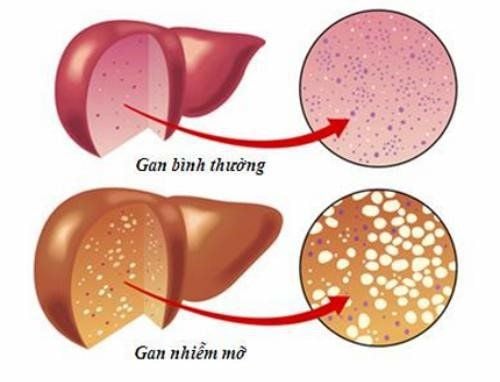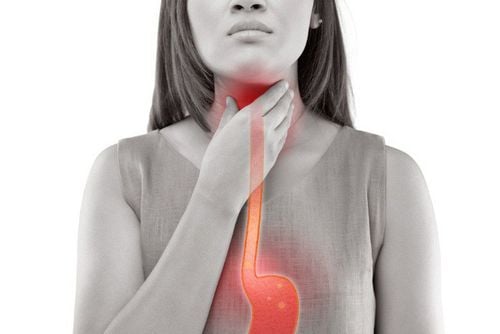Some foods can be beneficial for your health, but there are also foods that your body finds difficult to digest. Many of these hard-to-digest foods contain carbohydrates that are not properly broken down during digestion, often due to a deficiency in certain enzymes. Additionally, foods that are high in fiber can also pose digestion challenges. Read on to learn more about foods that are hard to digest.
1. What are foods that are hard to digest?
Our body is a system that requires a healthy diet to function. If you do not eat foods that are good for your digestive system, it will be difficult for your body to digest those foods.
Many people believe that everything they consume is good for their bodies or that their bodies can easily digest all types of food. However, this is not true. Our bodies function as a system that requires a healthy diet to operate properly. When you follow a nutritious diet, it positively impacts your body because your digestive system can process that food easily. Conversely, if you consume unhealthy or hard-to-digest foods, your digestive system struggles to break them down, leading to negative effects on your body. Some foods require significant effort from our digestive system to digest.
2. Foods that are difficult to digest
Fiber-rich foods can bring many benefits to the body in losing weight, but foods that are too high in fiber can make our digestive system feel uncomfortable. In addition to fiber, some cooking methods, such as frying, can also make it more difficult for our stomach to digest food. Carbonate and caffeine can also cause the same problem. Here are some foods to avoid because they may not be easy to digest.
2.1. Fruits
Most fresh fruits contain a good amount of fiber, especially if they have skins or seeds. Examples of easily digestible fruits include bananas and avocados. Fruits to avoid include:
- Dried fruits
- Cocktails
- Canned fruits
- Pineapple
- Coconuts
- Frozen or thawed berries
Stay away from any fruit or vegetable juice that is high in fiber. Tomatoes and citrus fruits can cause stomach problems, especially for people with Gastroesophageal reflux disease (GERD).
2.2. Vegetables
Raw vegetables should be avoided as they contain more fiber than cooked or canned vegetables. In addition, to keep the digestive system working effectively, we should also avoid:
- Corn
- Mushrooms
- Stir-fried vegetables
- Stewed tomatoes
- Potato peels
- Dried beans
- Peas
- Legumes

2.3. Fermented foods
Some people may want to skip fermented foods such as sauerkraut, kimchi and pickles. This is because canned fermented foods sold in stores or supermarkets not only do not contain the beneficial bacteria like homemade fermented foods, but on the contrary, they can hinder the digestive system, making people prone to bloating and indigestion.
Check the labels carefully on commercial products to make sure the food contains probiotics and other beneficial bacteria and does not contain too much salt or added sugar.
2.4. Meat and Protein Products
Any meat that is tough or fibrous can be difficult to digest. These foods may include:
- Crusted meats, such as hot dogs, sausages, and kielbasa
- Fried meats
- Processed meats with lots of seasoning
- Shellfish
- Beans, peanut butter, and whole grains are other sources of protein that can be a little harder for your body to digest.
2.5. Grains
Most refined grains are easy to digest. That means whole-grain breads, rolls, and bagels are not good choices. Watch out for grain products that contain raisins, nuts, and seeds, such as multigrain crackers. Avoid cereals that contain nuts, dried fruit, and bran. Granola, brown or wild rice, and whole-grain pasta are also difficult to digest.
2.6. Dairy Products
While people with lactose intolerance may want to avoid most dairy products, they may want to switch to yogurt or kefir. The healthy bacteria in these foods help break down lactose, making it easier to digest.
You can make your yogurt or look for varieties that contain special probiotics. Also, avoid any dairy products that are mixed with fresh fruit, seeds, nuts, or artificial sweeteners.
2.7. Other hard-to-digest foods
Other hard-to-digest foods we may want to avoid include:
- Jams and jellies that contain seeds, popcorn, and other condiments
- Carbonated drinks (like soda)
- Drinks that contain caffeine (like coffee)
- Alcohol
- Spicy or fried foods (which can cause heartburn or indigestion)
3. What foods are easy to digest?
Easily digestible foods can help relieve some serious symptoms and conditions. This can include:
- Nausea and vomiting
- Diarrhea
- Gastritis, enteritis
- Gastroesophageal reflux disease (GERD)
- Appendicitis
- Inflammatory bowel disease
Whatever the case, choosing the right foods can be key to avoiding potential triggers and feeling better.
Easily digestible foods tend to be low in fiber. This is because fiber – which is often considered a healthy part of the diet – is often found in fruits, vegetables, and grains, and is not digested by your body. As a result, fiber passes through our large intestine and can cause several problems, from gas, bloating, to difficult stools.

Eating foods low in fiber reduces the amount of indigestible substances and can ease your digestive symptoms.
3.1. Canned or cooked fruit
Whole fruits are high in fiber, but cooking them will reduce the amount of fiber significantly. For example, a 148-gram serving of raw pears with the skin on contains 4.6 grams of fiber, which is equivalent to 18% of the body's recommended daily fiber intake. Meanwhile, a 148-gram serving of canned pears contains about half that amount, 2.4 grams. Good choices in this category of foods include:
- Ripe bananas
- Cantaloupe
- Watermelon
- Avocado
- Applesauce
- Canned or cooked fruit without the skin or seeds
3.2. Canned or cooked vegetables
Like fruits, raw vegetables are high in fiber. After cooking, the fiber content of vegetables may decrease. For example, a 4-ounce serving of raw carrots contains 4 grams of fiber, which is 14 percent of the recommended daily amount. However, a 4-ounce serving of canned carrots contains less, at just 2 grams.
Potatoes without skin and tomato sauce are other low-fiber vegetable options. Both fruit juice and vegetables without pulp are also low in fiber.
Good choices of canned or cooked vegetables include:
- Seedless yellow squash
- Spinach
- Pumpkin
- Turnips
- Green beans
- Carrots
3.3. Meat and protein products
Main dishes such as chicken, turkey, and fish tend to be well-digested. Beef, pork, or ground meat are other good choices. You may also find that casingless sausages or casingless sausage patties (without whole seasonings) are easy to digest. Vegetarians can try incorporating eggs, creamy nut butter, or tofu for extra protein.
How you prepare your meat can also affect how easily digestible it is. Instead of frying, try baking, broiling, roasting, or boiling it.
3.4. Grains
Many of us have probably heard that whole grains are the best to include in our diet. If you are looking for easy-to-digest grains, you should look for the following foods:
- White or refined bread or rolls
- Plain bagels
- Toast
- Crackers
You can also find low-fiber cooked or dry cereals at the grocery store. Look for those that contain less than 2 grams of fiber per serving.
Refined flours (grains) have been processed to remove the bran and germ, making them easier to digest. This is in contrast to unrefined flours, which have undergone less processing and contain more fiber. Generally, refined flours are not recommended in large amounts as part of a healthy diet.
3.5. Dairy Products
For people with lactose intolerance, milk can upset the digestive system or cause diarrhea. Look for lactose-free or low-lactose products. On the other hand, milk is low in fiber and can be easy to digest for many people. Try drinking whole milk or snacking on cheese, yogurt, and cottage cheese. Easy-to-digest dairy desserts include:
- Milkshakes
- Puddings
- Ice cream
- Sherbets

3.6. Other Foods
Be careful when cooking with herbs and spices. Many spices can be bad for the digestive system. Ground spices may be better. The following foods are also safe to eat on a low-fiber or soft diet:
- Sugar, honey, jelly
- Mayonnaise
- Mustard
- Soy sauce
- Oil, butter, margarine
- Marmalade
In addition to the foods mentioned earlier, cutting food into small pieces and chewing thoroughly before swallowing can aid digestion. Avoiding rushing and minimizing distractions while eating can also help your digestive system function more effectively.
When following a low-fiber diet, you may notice smaller stools and reduced urination. To prevent constipation, be sure to drink plenty of fluids, such as water and herbal tea, throughout the day.
Any changes to your diet should be carefully considered and discussed with a dietitian. Before eliminating potentially difficult-to-digest foods, it may be helpful to keep a food diary. Record what you eat, the time of day you eat it, and how it makes you feel. This can help you identify and avoid foods that cause gas, bloating, stomach pain, or other discomfort. You can also share this information with your doctor to assist in diagnosing and treating any medical issues you may encounter.
To arrange an appointment, please call HOTLINE or make your reservation directly HERE. You may also download the MyVinmec app to schedule appointments faster and manage your reservations more conveniently.
References: lifealth.com, pharmeasy.in, healthline.com, webmd.com













